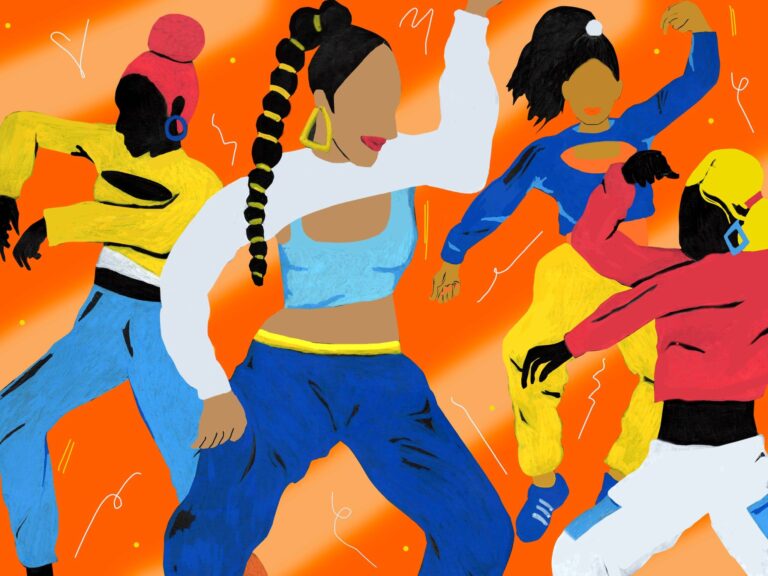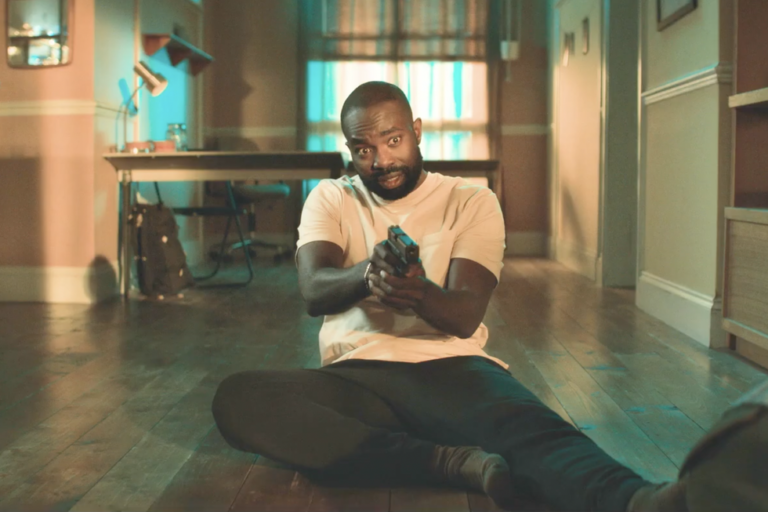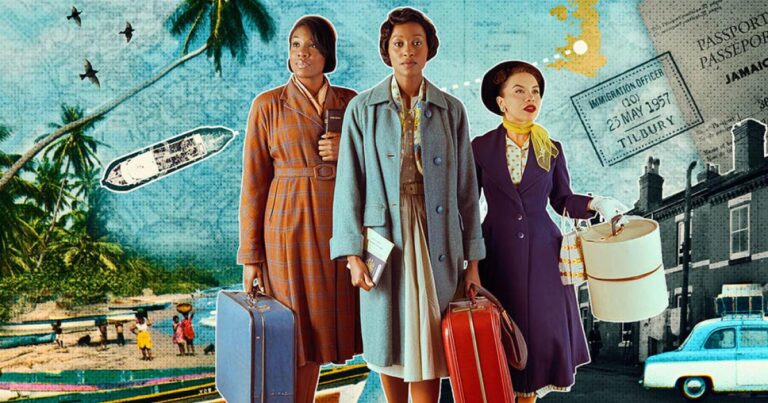Joey Akan is the one-man encyclopaedia for all thing afrobeats. Conch Africa sat down with the Nigerian journalist to take a fascinating deep dive into the genre…
Joey Akan’s Afrobeats Intelligence newsletter, which evolved into a podcast and YouTube channel, is a must for anyone into the genre currently taking over the world – afrobeats. Here, we chat to the man himself about rolling with Rema, smoking cigars with Asa – and who he thinks the next big stars of the scene could be…

Tell us what you do – Who is Joey Akan in a nutshell?
I’m a music journalist, a cultural commentator, music exec…I want to democratise African music. I try to break music down and give easy access to the public. Growing up as a child, I’ve always loved music and in adulthood, I’ve been privileged to work in music. One thing I’ve always understood is that people don’t know the education behind what they’re listening to, the stories I the music, the history.
So, your impulse was to dig deeper…
Yeah. If you say, who was Segun Buknor as an artist – you’d be hard-pressed to find anything out there about who he was, how he recorded his music, what he thought – his vibe and motivations as a person. We had a lot of that with Fela, because foreign companies signed him…so I thought let me focus on writing about music. The more I got into it, the more I realised a lot of people didn’t understand it. I started exploring, going through the record labels, speaking to artists and asking them one fundamental question: how do you do what you do? And why do you do what you do? So, over the last decade I’ve been able to amass all that information. Now I’m running Afrobeats Intelligence and doing exactly the same thing – giving people more access to the music, help them understand the ecosystem.
Tell us about Afrobeats Intelligence…
Afrobeats Intelligence started as a newsletter in 2020, then last year extended into a podcast, which has become so successful it almost breaks my heart, as nobody remembers the newsletter part! I love conducting interviews – that’s how I learn a lot about people – their motivation, inspiration. So, after conducting these interviews across the board, I realised that even though I tried as hard as I could to translate everything into writing, there was still something missing, and it’s all tied to originality. It was all tied to the moment and the feel, and I wanted to give people more. So, I waited until last year, when I could afford to buy equipment – and that’s how I created the podcast. I reached out to my contacts, saying that I was going to launch this podcast, and they were like, ‘Sure!’ It’s evolved pretty quickly – we launched on YouTube late last year and we’ve got almost a million views since then.
Recently, we launched a new episode, featuring our first non-Nigerian artist, Sarkodie, from Ghana. So what I’ve seen with the podcast and even the newsletter before it, while we tracked out the lives of the stars, what attracted me most is that it’s become a sort of entry point, like a de facto bible for people trying to join the industry, and understand the current trends, the business.
So, you’re a total aficionado of the afrobeats world. Was there a lightbulb moment for you, a turning point that brought you to doing this?
Well, in 2014 something crazy happened. I started writing in 2012, joined Pulse Nigeria [an entertainment website/channel], then in 2013 I was still in college and trying to write my thesis. After graduating (studied Biochemistry), I applied and got the job at Pulse. I was just following my joy, but in 2014, something drastic happened. The company I was working for changed management, and the new management came in and sacked a lot of people. The only reason I was saved, is when the new boss came in and was saying hi to everybody, he asked me my name and what I did there. I told him and he said I talked funny, he liked how I talked. That’s the only reason I didn’t get fired. You can’t do anything in Lagos without money, without a car…but since then I haven’t looked back. I didn’t have many local examples, a lot of the coverage was just on local celebrities, you know? The car. The fashion, the gossip, but my interest was the music, I thought that could work – so I started researching music journalists in America. Like Rolling Stone. I read them religiously, and tried to replicate them locally. That’s when I discovered I’d found my voice, my style – an eye for storytelling, at that level.
Something else that struck me was, I saw what was happening to afrobeat in 2015. I saw the contracts getting signed. In 2017, I saw the failed attempts of the genre to fly, to take off. And then, in 2018, we finally started cracking it. That was when I knew the world needed to know more about this movement, this sound. And who is better to tell the story than the people in the market? and I started pitching to everybody. NY Times, The New Yorker, CNN, anyone that would accept a piece – that was my big lightbulb moment.
How would you describe afrobeats’ origins – it’s a unification of a lot of genres…
If you trace African music right back, you’ll discover that we have traditional sounds, sounds that have existed forever. Even the Middle Eastern people who journeyed from the desert, the British people and the Americans – they assimilated a lot of these influences and indigenised them. For instance, Apala. Apala came from Muslim worship song. We extracted it, homogenized it and called it Apala music. Same with High Life. High Life came from Ghana, Ghanaians were doing a lot of work with their guitars, with melodies and they created this movement. The Easterners in Nigeria took it, converted it and called it High Life. All this fragmentation had already happened before the modern afrobeats industry began. We had a lot of American influences too, Carribean, then we were able to indigenise that, and expand the area of sound. We don’t have a genre anymore, because everyone has a ‘sound’. But trying to sell these songs to people outside Africa, who lack the context, we needed a way to categorise it properly, so we gave it a name: afrobeats.
Whose journey has inspired you the most?
I think it’s Rema. I know he’s a great artist constantly trying to push the boundaries. He makes music with a globalist approach. But why I’m really inspired by Rema, is that he’s gone through so much shit – he lost his father, a politically-motivated killing, moved to Ghana to hustle… and through all of it, still found a way out of this darkness and instability, with such grace, into music – into art that works for everybody. That speaks deeply. And now Rema’s got a global hit. Look at that video. those Iranian women dancing in public, without headscarves, using his song as a tool for resistance. Look at that, this is what can happen.
Is there a last topping needed on the afrobeat cake? It’s huge. But could it be bigger?
Yes, in terms of the creativity and expansiveness. I foresee afrobeat conquering most world stages – we’re getting to a point where others are taking elements of the sound, and serve them back as global pop music. But what keeps me up at night is the absolute lack of ownership within the culture. So, now afrobeats is expanding, major music companies have discovered they can fight for market share, extract and export it. But while we’re all shouting and celebrating, we need a lot of development locally. We need more ownership, infrastructural development. There are no proper venues. We don’t have touring circuits – we can’t properly extract money from music, from the populus. Those things may not look like a lot now because of how far we’re travelling, they will eventually bite us in the ass! Because in the end, you need functional systems to extract value both home and away. We need to fix that.
Afrobeat artists seem to respect fans abroad but at home, they often turn up hours late… what’s your take on that?
I think it’s cultural, it’s a general lack of commitment to flawless execution and professionalism. It’s not even about the musicians – it’s the entire system of live shows, starting from the promoters. And Nigerians have gotten to expect this, as the norm. We’re hearing noise about it now in Nigeria, because we see these same artists putting on shows internationally and they don’t have any of these problems. They come home to Nigeria and they’re giving us crumbs. Their sound is bad, they start hours late. We’re plugging ourselves into the global pop music behemoth, but we need to show that level of excellence and growth at home, where it all started. Year on year, there are small improvements – but it’s not fast enough.
Do you have any highlights with these stars over the years?
OK… I was working on a project with Runtown, and I was staying in a hotel room with him. It rained heavy, while we were smoking cigarettes outside and the room was flooded – equipment, everything. We didn’t want to stress anyone else out, so we got brooms and mops and all got down on all fours, all of us to sort it out. Seeing this superstar mopping the ground was something else…! I once rolled with Rema after his show, and we were stopped by the police. When they realised who it was, they were like ahhhh, cool… so I was like, ‘ah so to get respect you just need to be a superstar, huh?!’ Other moments include smoking cigars and drinking tea with Asa in her garden. Let’s see there’s a lot of drinking, a lot of marijuana smoked…! I’m just grateful for it all – to have a front-seat in this definitive period of our culture. Hopefully, I get to play my part. And when it’s done, I walk away.
You Tweeted recently, that Nigerians are losing their gift for storytelling. Expand…
We are a country of storytellers. We didn’t have a culture of parents reading their kids bedtime stories. But what we did as children was, the entire community would gather in the evenings, under the moonlight, and pass down stories to each other. Our music too, the best of our music, too – our songs – are historical records. Our old songs are all about telling stories. So, when we started our modern music industry, we wanted to make longer songs. But what we have now are shorter songs. Nigerians have migrated heavily, like other parts of the world, towards escapism. What we want from music is just to feel good. Our artists have learned this – and switched the type of stories they tell. Whereas previously an artist could tell you about missing a girl they met two months ago, today’s artists will say they’ve ‘met a girl’ – and the rest of the song is expressing love for that girl. That’s it. What has improved over time though, is that our use of words has improved, we’re more eloquent. I was listening to a Nigerian song with the word ‘gargoyle’ in it the other day! We rhyme better, we bounce around. While we’re getting technical growth, we’re losing the storytelling element. I’m a storyteller, I love stories paired to melody – it makes songs deeper and brings them to life. So, I’d like to see more of that.
What’s your current earworm – and who are a few upcoming stars for you?
The earworm is a song by Wizard Chan, Earth Song. He’s great. Majeed’s also great. And Bloody Civilian – her new song How To Kill A Man is just beautiful.
Here is a link to Afrobeat intelligence on youtube https://youtube.com/@afrobeatsintelligence
Twitter @/ Joey Akan or https://twitter.com/JoeyAkan?s=20

Fun fact about Joey Akan?
The first job that ever earned me any money wasn’t my writing. I was training people on how to task women out. I knew how to have conversations with women, so people would ask me advice – when to give a compliment, when not to… it was all very silly. If they paid extra, I could write them a love letter. For real.




